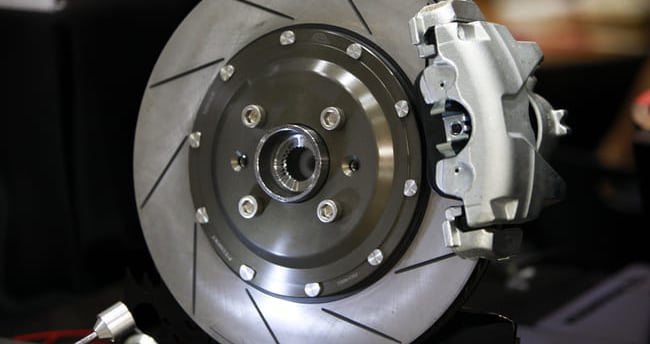Understanding Brake Disc Replacement: Intervals and Costs Explained
Blog post description.
10/12/2024


The Function of Disc Brakes
Disc brakes are widely recognized as the standard braking system in modern vehicles, including cars, trucks, and motorcycles. Their efficiency and reliability make them a preferred choice. A typical disc brake system consists of several critical components, including brake discs and brake pads. While brake pads are the primary wearing components that need routine replacement, brake discs also experience wear over time, making it essential to pay attention to their condition and replacement needs.
Replacement Intervals for Brake Discs
Knowing when to replace your brake discs is crucial for maintaining overall vehicle safety. Unlike brake pads, which typically need to be replaced every 20,000 to 60,000 miles depending on driving habits and conditions, brake discs can often last longer — usually between 70,000 to 100,000 miles. However, several factors affect the lifespan of your brake discs, including driving style, road conditions, and the quality of the discs themselves. It’s worth noting that if you frequently drive in stop-and-go traffic, your brake discs may wear out faster, necessitating more frequent checks and potential replacements.
Cost of Brake Disc Replacement
The cost to replace brake discs can vary significantly based on several factors, including the make and model of your vehicle, whether you choose original equipment manufacturer (OEM) parts or aftermarket options, and local labor costs. On average, the price for new brake discs ranges from $50 to $150 per disc, while labor can add an additional $100 to $200 if performed by a professional mechanic. Therefore, the total cost for brake disc replacement can range from around $250 to $600, depending on whether both the discs and pads are replaced at the same time.
It’s important to keep in mind that although replacing brake discs may feel like a significant expense, regular maintenance can save you money in the long run by preventing more serious issues. Ignoring worn discs can lead to brake failure or extensive damage to other components, ultimately costing you more in repairs if not addressed promptly. To ensure optimal performance, check your brakes regularly and consult a professional if you notice any signs of wear.
Service
Parts
info@zumurdalnajaf.com
+9647769250299
© 2024. All rights reserved.


